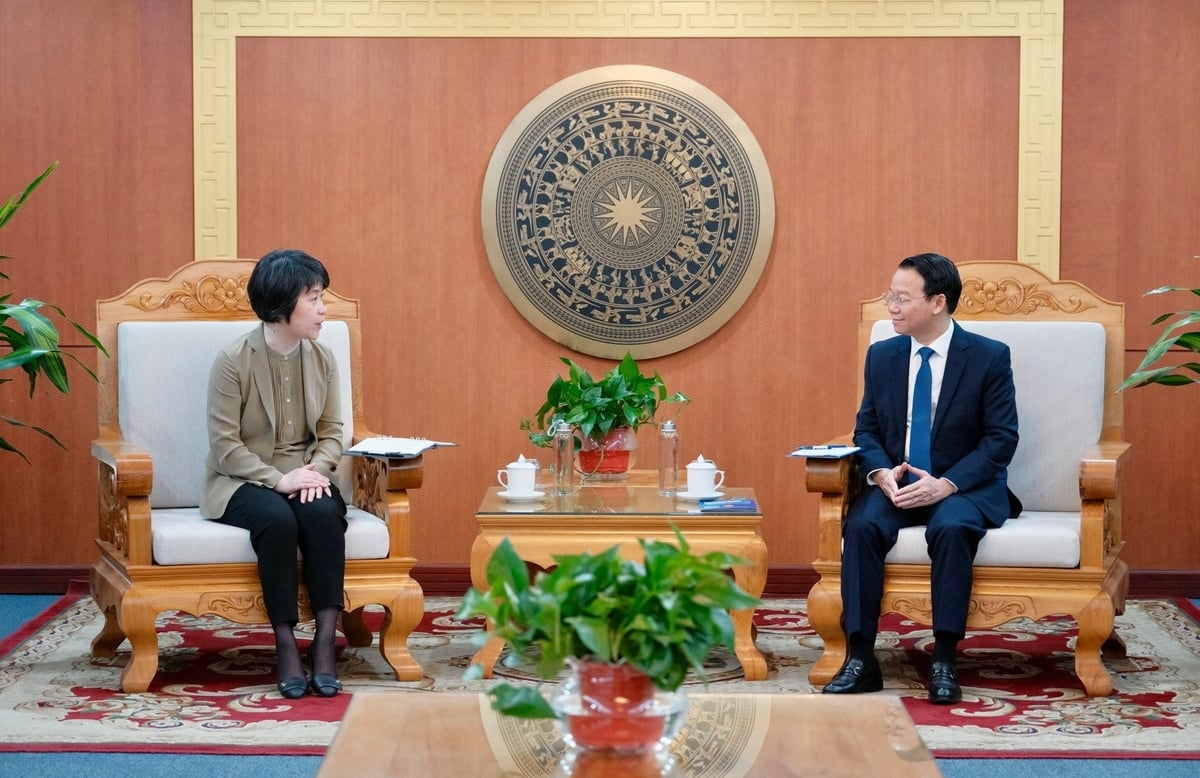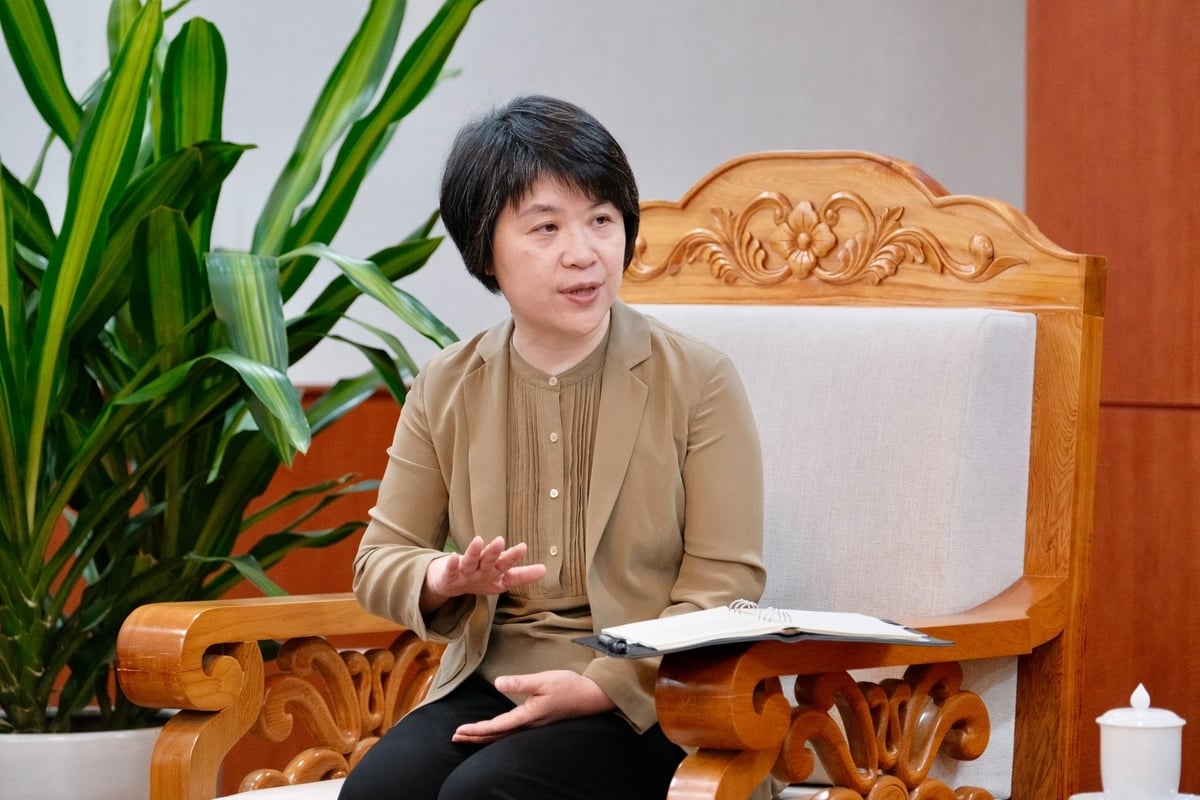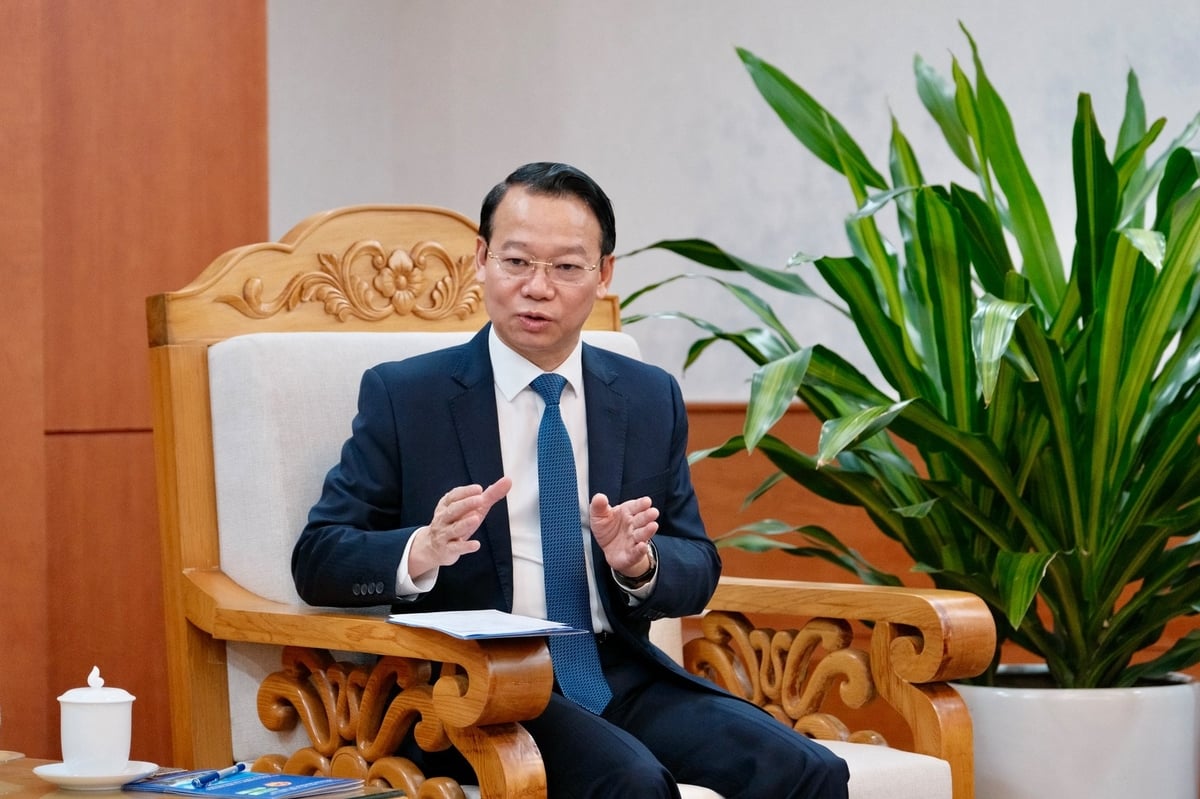May 30, 2025 | 02:10 GMT +7
May 30, 2025 | 02:10 GMT +7
Hotline: 0913.378.918
May 30, 2025 | 02:10 GMT +7
Hotline: 0913.378.918
P4G Summit (Hanoi, April 15-17, 2025), themed "Sustainable and people-centered green transition,” is the largest multilateral high-level event on green growth hosted by Vietnam in the 2021-2026 period. Vietnam Agriculture and Nature Newspaper (VAN) will update regularly Vietnam's strong commitments, proactive role, and international responsibility at the P4G Summit.
On the morning of April 16, Minister of Agriculture and Environment Do Duc Duy welcomed and held talks with Ms. Guo Fang, Deputy Minister of Ecology and Environment of China, on the sidelines of the Partnering for Green Growth and the Global Goals 2030 (P4G) Summit.
At the meeting, both leaders exchanged experiences in managing air quality, developing carbon markets, and responding to climate change.

Bilateral meeting between Minister Do Duc Duy and Deputy Minister of Ecology and Environment of China, on the morning of April 16 in Hanoi. Photo: Quynh Chi.
From 2015 to 2024, while China’s GDP rose by 55 per cent and the number of vehicles doubled, national PM2.5 levels dropped by 36 per cent, with Beijing seeing a 61 per cent decrease.
This progress stems from a system that manages environmental pollution with the motto: “Government leads, enterprises act, science and technology support, the public protects.” These four pillars have guided efforts to improve air quality while sustaining social and environmental development.
According to the head of China’s Ministry of Ecology and Environment, a key strategy lies in shifting energy use in industry and transport toward cleaner sources. Over the past decade, coal’s share in China’s energy mix fell sharply, from 47% to 23% by 2024.
In China's northern regions, authorities introduced several measures to govern emissions and cut coal use. In particular, Beijing is building a system that supplies alternative heat to nearby areas, enabling 4,100 households to switch to clean energy and reducing coal use by around 80 million tons.
At the same time, China built the world’s largest clean steel production network, helping slash emissions in heavy industry.
In transport, China now exports new energy vehicles that make up 70% of the global market, securing the top spot worldwide for consecutive years.
Notably, China also uses biofuels in heating and deploys satellite-based remote sensing to track pollution in localities, enabling quick and effective responses.

Deputy Minister of Ecology and Environment Guo Fang shares experience in monitoring environmental pollution in China. Photo: Quynh Chi.
According to Chinese Deputy Minister Guo Fang, air and environmental pollution remain unavoidable during industrialization. “Blue skies are Beijing’s miracle, made possible by a comprehensive air pollution monitoring system,” she affirmed, expressing her wish to share China’s experience with Vietnam.
In response, Minister Do Duc Duy praised China’s efforts to improve air quality, especially in major cities. He expressed particular interest in the use of remote sensing technology to track pollution levels.
“This is a modern, effective approach that other countries can study and adapt to their own circumstances,” the Vietnamese Minister said. He noted that China’s strong and decisive actions have delivered tangible results, showing a firm commitment to protecting both the environment and public health.
Minister Duy also stressed that during the energy transition, engaging in green finance will help drive progress for both governments and businesses. He shared that Vietnam is improving its legal framework, actively joining multilateral cooperation platforms, and focusing on managing CO2 emissions.
“Vietnam is shifting production toward low emissions while laying the groundwork for a domestic carbon market, expected to be piloted until 2028. With your support, we hope to speed up this process,” he added.
Regarding carbon markets, Vietnam looks to China’s experience in building and running its national system. The country hopes to establish a deeper cooperation channel to learn and apply these lessons effectively at home.

Minister of Agriculture and Environment Do Duc Duy shares about Vietnam's green growth orientation. Photo: Quynh Chi.
At the P4G Summit, the Ministry of Agriculture and Environment expressed its hope to work with China on climate change by sharing policy information, goals, and roadmaps for reducing greenhouse gas emissions.
A key direction for cooperation is to jointly study and compare existing legal and regulatory systems, analyze the strengths and gaps in each country’s greenhouse gas management, and use these insights to improve together.
Minister Do Duc Duy reaffirmed Vietnam’s support for international conventions and its readiness to join other governments in promoting national contributions toward global sustainable development goals.
Vietnam wishes to strengthen cooperation with China in transferring climate monitoring technology, early warning systems, as well as training programs to improve climate change response capacity for both the public and private sectors and communities.

(VAN) Ms. Nguyen Thi Dung, Deputy Director of Ngoc Hoang Cooperative, shared about the journey of bringing dragon fruit to Europe, achieving annual revenues in the billions of VND.

(VAN) Bamboo products from Thang Tho Bamboo Cooperative have reached many countries around the world, while also creating jobs for local workers.

(VAN) The Management Board of Con Dao National Park reported that a green sea turtle, tagged in the Philippines, has traveled thousands of kilometers to lay 84 eggs on Bay Canh Islet.

(VAN) Green technology is paving a new path for sustainable aquaculture in the Mekong Delta in particular and across the country in general, helping reduce emissions and adapt to climate change.

(VAN) On May 27, La French Tech Vietnam (the French startup and innovation community in Vietnam) held the French Tech Summit Vietnam 2025.
/2025/05/27/4731-2-223159_980.jpg)
(VAN) No votive paper, no styrofoam, no plastic bags, no plastic bottles, and no single-use plastic trays are the key rules tourists should keep in mind when visiting Con Dao.

(VAN) In the fight against plastic pollution, Vietnam has been demonstrating a proactive, pioneering, and active role in addressing the greatest environmental challenge today.